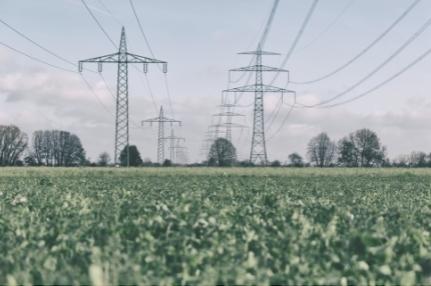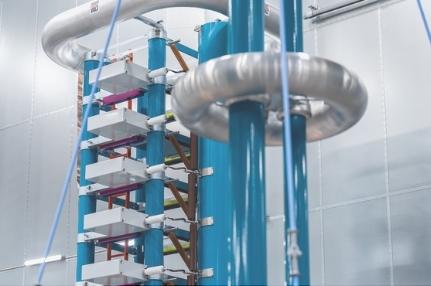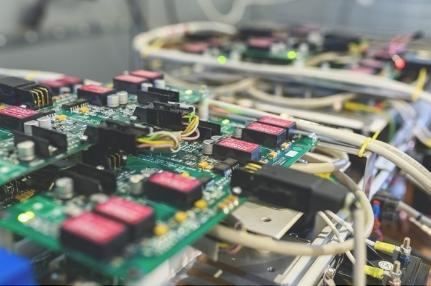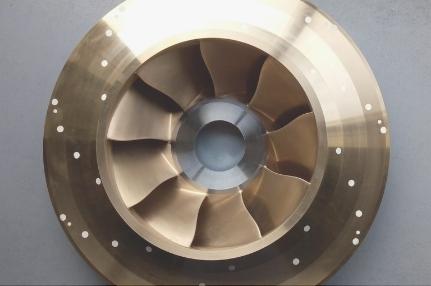Recherche & collaboration
Qu’est-ce qui nous rend unique ?
SuperGrid Institute doit son succès aux personnes qui composent nos différents départements de recherche. Nos équipes viennent d’horizons divers, tant industriels qu’universitaires, et la richesse de leur expérience et de leurs compétences rend l’Institut unique.
Chaque personne apporte une expertise spécifique et ce vivier de connaissances offre aux spécialistes de différents domaines la possibilité de collaborer sur des solutions innovantes pour résoudre des problèmes techniques.
L’Institut bénéficie d’étroites relations de collaboration avec des acteurs de l’industrie et des institutions académiques. Alors que les forces complémentaires de nos partenaires apportent des éclairages et des approches innovantes aux défis techniques, nous développons nos départements de recherche en toute indépendance. Des investissements conjoints publics-privés et des projets de collaboration financent le travail.
Les installations de recherche, les plateformes de test et les laboratoires de pointe de SuperGrid Institute sur les sites de Villeurbanne et de Grenoble sont la clé du succès de nos départements de recherche.

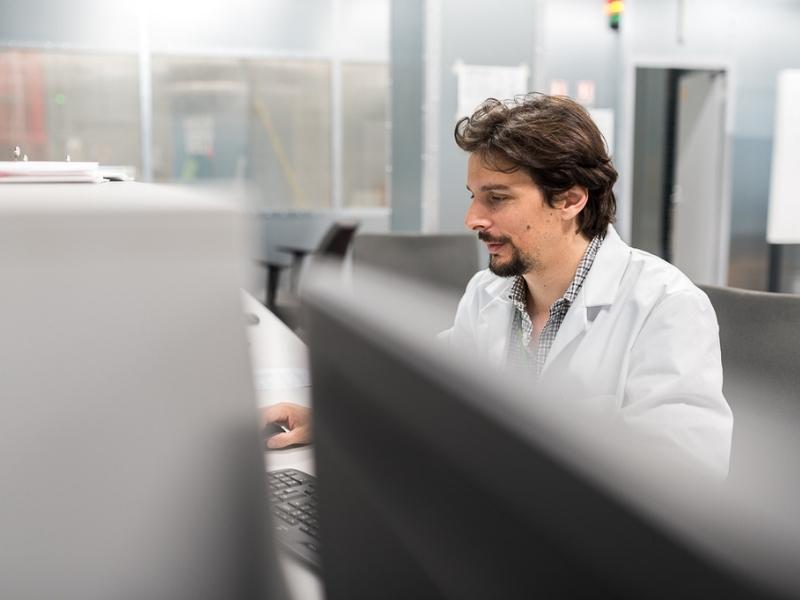
Nos dernières publications scientifiques
Design and validation tests of 320kV HVDC GIL/GIS
This paper gives an overview of electrical DC phenomena in GIL/GIS, the influence of insulating properties of SF6 and filled epoxy resin, and design of new support insulator for 320kV HVDC GIL/GIS. The busbar system including the insulator was designed not only to satisfy all standard requirements such as mechanical, temperature rise, heating cycle performance but also particular requirements for HVDC applications such as superimposed impulse tests. Finally and for the first time at actual scale, type test according to CIGRE JWG D1/B3.57 was conducted in EDF R&D Les Renardières laboratory to verify the design and insulating performance of the 320kV HVDC GIL/GIS system. The satisfactory results allow to confirm the high technology readiness level of HVDC GIL/GIS.
NPC assessment in insulated DC/DC converter topologies using SiC MOSFETs for Power Electronic Traction Transformer
Power electronic traction transformers (PETT) are multilevel AC/DC on-board converters, studied for railway applications to replace traditional solution with low frequency transformers. This paper focuses on the insulated DC/DC converter in a PETT. Three variants of resonant single active bridges (R-SAB) with 3-level NPC primaries are optimised to maximise the efficiency, under mass and dimension constraints. They are sized and compared for a 2 MW PETT on a 15 kV/16.7 Hz railway infrastructure, using 3.3 kV SiC MOSFETs and nanocrystalline C-core transformers with cast resin insulation and forced air cooling. The highest efficiency at nominal power, 99.17 %, is reached for a configuration with a 3-level full bridge NPC primary, a 2-level full bridge secondary, and a 32.1 L/49.1 kg transformer operating at 6 kHz.
Electric field computation for HVDC GIS/GIL spacer under superimposed impulse conditions
This paper evidences the influence of different parameters on the electric field on DC spacers in GIS/GIL and thus their dielectric withstand under S/IMP tests. A notable difference in term of electric field can be observed in function of impulse polarity, load condition (with/without heating current) and insulating material’s properties. For example, an overstress of 0.3pu was obtained on spacer’s surface in case of superimposed impulse test with opposite impulse polarity, high load condition and high leakage current in gas. Contrary to AC system where the simple LI tests were enough, S/IMP tests with both impulse polarity, ZL and HL conditions are mandatory to verify the insulating performance of HVDC GIS/GIL spacer. This paper gives a better understanding of the electric field distribution in HVDC GIS/GIL and helps for the design and tests


